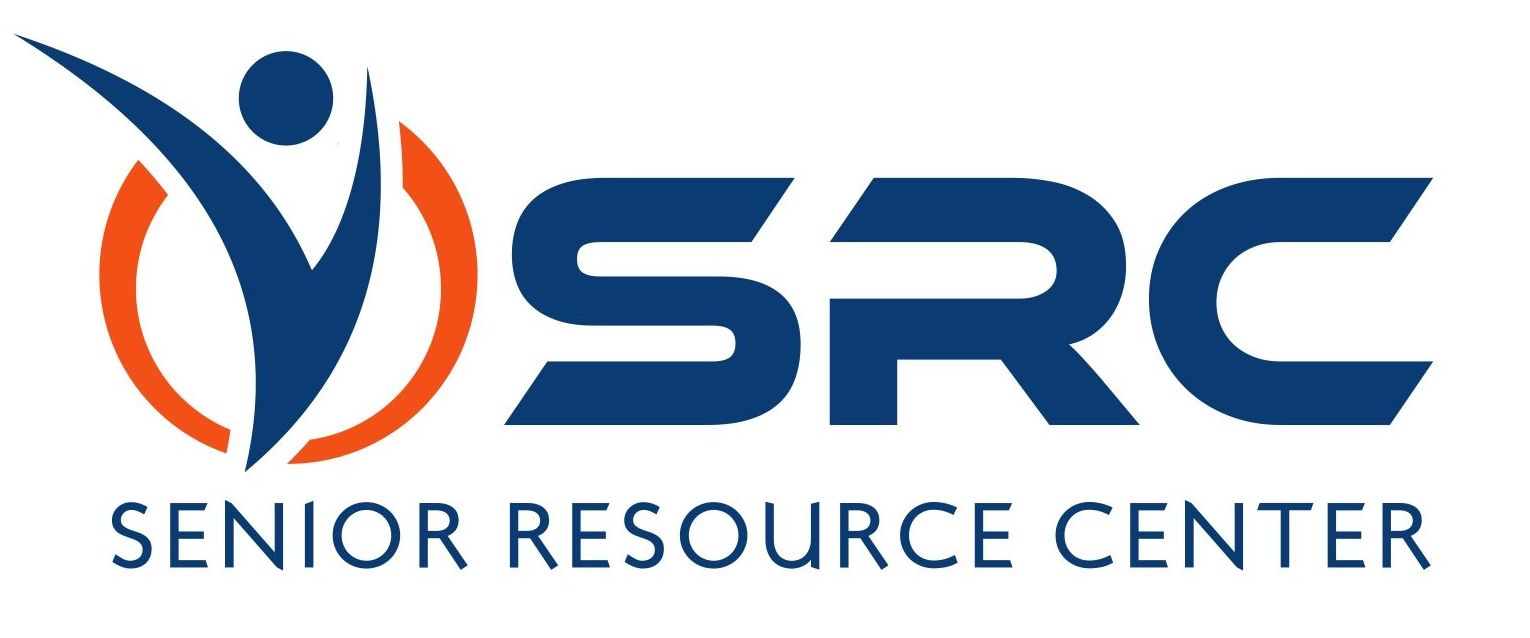By William Witt
•
September 23, 2025
1. Tax-Free Social Security Income Prior to 1984, Social Security income was tax-free. Today, you could be paying tax on up to 85% of your Social Security income. The IRS calculates the tax on Social Security based on total income: Adjusted Gross Income (AGI) + Tax-Free Municipal Bond interest + Half of your Social Security. For a single filer, the thresholds are $25,000 to $34,000 where up to 50% of Social Security is taxable and over $34,000 up to 85% is taxable. The thresholds for couples are $32,000 to $44,000. Minimizing taxable Social Security income involves managing your total income. Here are strategies to stay below the tax thresholds: 1. Minimize Taxable Interest - Use tax-deferred products, like annuities, that earn and accumulate but don’t generate reportable taxable income. 2. Withdraw from Roth Accounts - Distributions from Roth IRAs are tax-free and don’t count toward total income. Refer to Roth IRAs Lower Taxes later in this guide to learn how to tax efficiently convert 401k or IRA $$ to a Roth IRA. 3. Delay Social Security - Waiting to age 70 increases your monthly benefit, and gives you time to draw down taxable accounts (like traditional IRAs), potentially lowering future AGI. 4. Harvest Capital Gains - Long-term capital gains are taxed at preferential rates, and gains count toward combined income. But if your taxable income is low enough, you may qualify for the 0% capital gains bracket, especially if you offset gains with losses. 5. Use Qualified Charitable Distributions (QCDs) - If you're 70½ or older, you can donate up to $108,000 ($216,000 for a couple) in 2025 directly from your IRA to charity. QCDs satisfy RMDs and don’t count toward AGI. 6. Leverage the Senior Deduction (2025–2028) - The new $6,000 deduction for seniors phases out at $75,000 (single) or $150,000 (joint). Staying below these thresholds preserves the deduction and reduces the taxable portion of your SS benefits. 7. Coordinate IRA Withdrawals - Before claiming Social Security, withdraw from traditional IRAs to “fill up” lower tax brackets. After claiming, reduce withdrawals to avoid pushing combined income above the 50% or 85% tax thresholds. Want to see if these strategies will work for you? Bring in a copy of your tax return and we will let you know how much you could save in taxes. 2. Medicare IRMAA Taxes IRMAA isn’t a lady…it’s the additional Premium or Surcharge (really a tax), higher income people pay for Medicare Parts B, C and D. The amount is based on your Adjusted Gross Income, and here’s the kicker. If income is $1 above an income bracket, you pay the higher premium/surcharge the entire year (unlike income tax where you only pay a higher tax on $$ in a higher tax bracket). Below are 2025 income brackets for Medicare IRMAA Parts B and D. How you position savings and the sources of your income can reduce and sometimes eliminate IRMAA. Social Security calculates IRMAA based on your total income two years prior from all sources (2023 income for 2025 IRMAA). If your income has dropped because of a life changing event (retirement, reduction in work, death of a spouse, etc.) you can report the change using Social Security form SSA-44 and Social Security will adjust what you pay. Since IRMAA is based on total taxable income, you have options. Earnings from tax-deferred products like an annuity, earning but left to accumulate, don’t appear on your tax return. Also, withdrawals from a Roth IRA are tax-free and don’t impact Adjusted Gross Income. Refer to Roth IRAs Lower Taxes later in this guide to learn how to tax efficiently convert 401k or IRA $$ to a Roth IRA and reduce or eliminate Medicare IRMAA. 3. CD Alternative? Certificates of Deposit (CD’s) are a popular way to position savings for safe growth with minimal market risk. They pay a declared rate of interest for a specific period of time (typically 3 months to 5 years). They are offered by Banks and Credit Unions, and are guaranteed by the Federal Deposit Insurance Corporation (FDIC) or National Credit Union Association (NCUA) up to $250,000 per named account if the Bank or Credit Union becomea insolvent. What’s the downside of CDs? What do you receive each year with a CD…a 1099 in January from a Bank or Credit Union to report and pay taxes on interest you earned, even if you didn’t withdraw any money. Paying taxes annually reduces real growth. If your CD pays 4% interest and you are in the 12% tax bracket you’re actually earning 3.52% after tax. What’s a safe alternative? Positioning funds in a product that grows tax deferred, like an annuity, will grow faster. Why? Because leaving funds to grow that would have been paid out in taxes allows for compound growth. A famous quote attributed to Albert Einstein (but never verified), “Compound interest is the eighth wonder of the world. He who understands it, earns it; he who doesn’t, pays it.” Let’s compare a $250,000 CD earning 5%, taxable at 20% to a tax-deferred product growing at 5%, with taxes paid after 10 years. Tax deferral generates a higher end value, but the real benefit might be reducing taxes on Social Security income and avoiding Medicare IRMAA. Tax deferred annuities offer one more significant advantage vs. CDs for after-tax funds. They are protected from creditors and lawsuits. You can’t lose your savings to a car accident or other legal event. 4. Mutual Fund Alternative? Investing after-tax funds takes some work and Mutual Eunds are a popular option. Each fund is a group of stocks or bonds that have similar characteristics (specific industry, geographic area, size of company, etc.). One concern, Mutual funds can generate a tax obligation even if you don’t withdraw a single dollar. It’s especially frustrating when your account value drops but you still owe taxes. Here's how it works. Fund managers buy and sell securities within the fund. If they sell assets at a profit, those gains are passed on to shareholders as Capital Gains Distributions. These are taxable, even if you reinvest them. If the fund earns dividends or interest from its holdings, that income is distributed to shareholders and taxed as ordinary income or qualified dividends, depending on the source, even if you reinvest them. Phantom gains can occur when your fund’s value declines while you receive taxable capital gains distributions, because the fund may have sold appreciated assets earlier in the year, triggering gains, even if the market later dropped. Mutual funds also have fees (another “hidden tax”) that are usually not reported, but reduce fund performance. And, like all investments directly in the market, they are subject to market fluctuations. Your account value can go up but it can also go down. Would you like a mutual fund alternative that tracks the performance of the stock market, protects your principal and prior earnings when the market declines, has minimal or no fees, and only creates a taxable event when you withdraw money? A tax-deferred equity-indexed annuity could be a good option. Equity-indexed annuities peg growth to one or more market indexes such as the Dow Jones, the S&P 500 and the Russell 2000. If the index is up, you lock in a gain, but if the index is negative, you don’t participate. The funds pegged to an index grow based on a Participation rate (for example 50%) or a Cap (up to 8%). Some annuities have fees, but many don’t. Withdrawals from an annuity are taxed as normal income, but only withdrawals from a pre-tax (qualified) account or the gain in an after-tax account are taxed and only when you withdraw funds. You decide when to pay Uncle Sam. Annuities are issued for different lengths of time (typically 1 to 10 years); Most policies allow you to withdraw 10% of the contract value after the first year, but have surrender charges for excess withdrawals. These charges decline over the length of the contract. 5. Live Better on Less Money What’s your definition of Financial Security? Let’s assume you have a low tolerance for risk and prefer safe investments. How much income from Social Security and interest from a safe CD (never tapping your principal) would you need to support your lifestyle? Let’s say your Social Security is $3,296 and your living expenses run $6,249 per month. How much money do you need in CDs earning 4% to cover the $2,953 shortfall? The answer: $885.900 ($2,953 x 12 / .04). But what if you only have $642,700 in savings. This is the challenge many folks face heading into retirement, with a standard of living established while they were working that’s now dependent on consuming savings to cover living expenses. Obviously you could curtail your lifestyle reducing expenses, take on riskier investments, or hope to win Powerball, but there is a better, safer, simpler option. Recent research in the financial industry identifies the solution. It indicates people with more guaranteed income in retirement have better financial outcomes. They also have more peace of mind knowing they can cover living expenses, just like when they were working, and not run out of money. Today, it’s possible to build a financial model based on your income, expenses and savings that pinpoints your future net worth 10, 20 or even 30 years in the future. The secret to a safe, secure retirement is multiplying the value of the money you have. The income and expense numbers above came from a real life case, that showed with conservative investments the client would run out of money when she’s 86. The solution to extend solvency to age 100 was converting $150,000 of her savings into guaranteed lifetime income that generates $1,123 monthly. The income product is drained in 14 years, but even when the principal is consumed, it continues to pay out, multiplying the value of her money. 6. Roth IRAs Lower Taxes One way to save on federal income taxes in retirement is to convert qualified funds (401k, 403b, 457, IRA, SEP IRA, etc.) to a Roth IRA. Doing this shields any appreciation on Roth assets from future federal taxes assuming you are age 59½ and hold the funds for five years. There is no age or dollar limit on conversions, and unlike traditional IRAs, Roth owners are not required to take Required Minimum Distributions (RMDs) at any age. Most important, Roth distributions don’t count as income causing Social Security benefits to be taxed and forcing you to pay Medicare IRMAA. Here are two strategies to tax efficiently convert funds: 1. Gradual Conversion – To efficiently tax convert qualified $$ to a Roth IRA: (1) Avoid moving into a higher income tax bracket and (2) Pay the tax obligation from other savings. For example, the income ceiling for the 12% tax bracket claiming standard deductions is $142,150 for a couple over 65 ($96,950 + $30,000 +$3,200 + $12,000) and $71,475 for a single person over 65 ($48,475 + $15,000 + $2,000 + $6,000). If a couple has $122,150 gross income they can convert $20,000 of IRA funds to Roth at the very low 12% tax rate. Converting additional $$ would put them in the higher 22% tax bracket. If the couple uses other savings to pay the tax obligation, they can claim the full $20,000 amount as Roth $$, and $20,000 tax-free Roth $$ will always outperform $20,000 taxable IRA $$. 2. Income Rider – Pre-tax qualified funds (think IRA) have mandatory Required Minimum Distributions (RMDs) when the owner turns 73, and the % you have to withdraw increases each year you get older. What’s the smartest way to take RMDs? Reposition qualified funds in a tax-deferred annuity with an Income Rider. The Income Rider is a lifetime pension you can turn on whenever you want. The income it pays out satisfies the RMD. After 10-12 years the Income Rider drains the annuity. When the account value is near zero you can convert the IRA annuity to a Roth annuity and future income is Tax-Free. Non-spouse beneficiaries of IRA and Roth accounts are required to withdraw all funds within 10 years. Ask your kids which kind of money they’d like to inherit: Taxable or completely Tax-Free. Call if you would like more information about Roth IRAs. 7. Tap Home Equity Are you house rich but savings poor? Here are 3 tax strategies for homeowners in Texas. 1. Downsize – Home prices have skyrocketed in central Texas and this may be a good time to cash out. The tax rules that govern homes changed in 1997. Today single people can shield $250,000 of gain from taxes, while married couples filing jointly can protect $500,000 of gain from taxes. The house must be your primary residence and you must have resided there 2 of the preceding 5 years. Downsizing can free up tax-free money to support your lifestyle. 2. Defer Property Taxes – As property values have soared, so have property taxes. Would you like to defer your property taxes? You can if are 65 or older, Disabled (defined by Social Security), a Disabled veteran, or Surviving spouse/child of one, Surviving spouse of a U.S. service member killed in the line of duty or facing a property value increase of more than 5% (with limits). You file an affidavit with your local tax assessor’s office. As long as you own and live in the home, you're protected from foreclosure or collections. The deferred taxes accrue interest (typically 5–8% annually) and the full amount becomes due within 180 days after you sell, move out, or pass away. 3. Tap Home Equity – Do you want to stay in your home, but need help paying bills? Consider a reverse mortgage. It lets you withdraw tax-free equity from the value of your home in a lump sum or a stream of lifetime income. The amount depends on your age, the value of your home and how much equity you have. If you are still paying on a traditional mortgage, it gets paid first. The biggest difference between a reverse and traditional mortgage is when you pay it back. You can make payments when convenient or wait until you move out to settle up with the mortgage company. If you aren’t making payments, the amount you owe grows at interest. Home Equity can sustain your lifestyle. 8. Pay for Long-Term Care with Tax-Free $$ Long-Term Care is the biggest financial risk we all face. It’s the number one reason seniors go broke in retirement. Statistics indicate over half of people over 65 will require long-term care, and the cost keeps rising. How much? Home care can range from hundreds of dollars a month to over $20,000 if you need 24x7 care. Assisted Living (that often includes Memory Care), where you receive some care, ranges from $3,500 to $6,500 per month. A semi-private room in a Nursing Home costs between $6,000 to $7,500. The average duration of nursing-home stays for men is 11 months and 17 months for women. What’s the probability of needing more than one year in a nursing home: men 22%, women 36%. With such a great financial risk, everyone needs a plan. Here are 3 tax-efficient options to pay for care: 1. LTC Insurance – Long-Term Care Insurance transfers the risk of paying for care from you to an insurance company. The benefits paid are tax-free, but you need good health to qualify for a policy. What’s the downside? Policies have gotten much more expensive and they are “use it or lose it.” If you don’t use the benefits the premiums paid aren’t refunded. 2. Life Insurance – Life Insurance policies can include a withdrawal feature where you can draw a percentage of the death benefit (typically 5%) monthly to pay for care. Payments are tax-free and unlike LTC Insurance, if you die without drawing the total death benefit, the balance is paid tax-free to heirs. 3. Medicaid – Medicaid qualification rules vary by state, but Texas is “Medicaid Friendly” when it comes to paying for long-term care in a nursing home. Most importantly, you DON’T have to be broke to qualify. Couples in Texas can protect ALL their assets and qualify one spouse for benefits. Singles can protect their home, car, burial program and 50% to 100% of other savings. Where’s the Tax Advantage? Retirement funds (401k, 403b, IRA, Roth, etc.) are Exempt from Medicaid spend-down if held in a Tax-Deferred Annuity. You can keep all your retirement funds.




